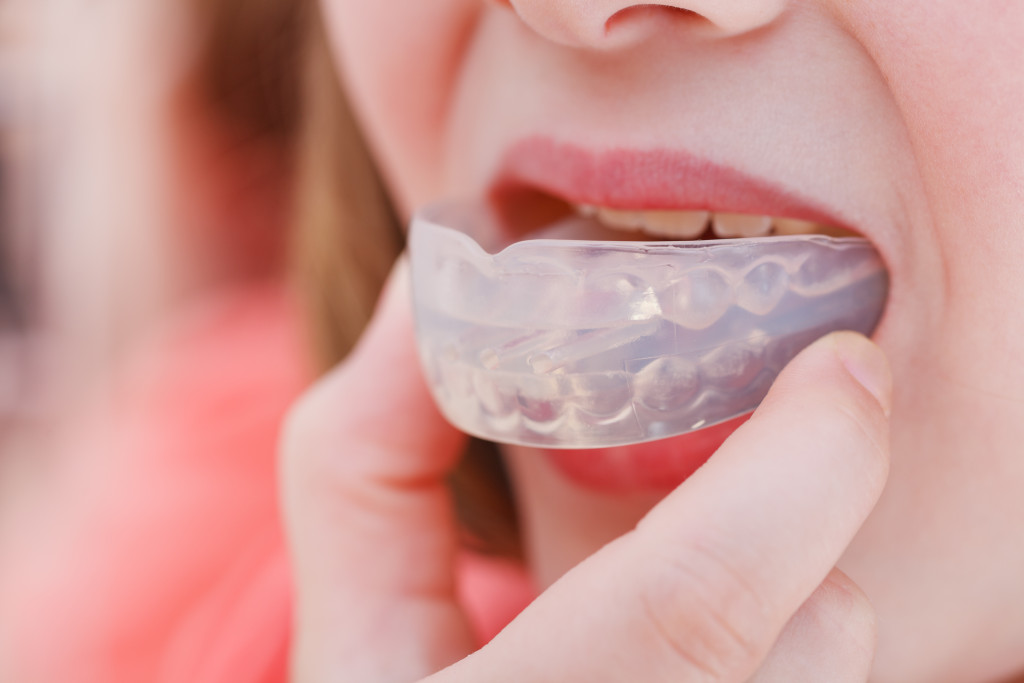Bruxism is a condition that causes people to grind or clench their teeth. It can occur during the day or at night, and it can cause various problems for those who suffer from it. Here are five things you need to know about bruxism.
Pain
First, bruxism can lead to headaches, jaw pain, and earache. If you suffer from bruxism, you may have these symptoms more often than those who don’t suffer. The grinding and clenching can cause a great deal of pressure on the jaw, leading to pain in the jaw, head, and ears.
Damaged Teeth
Bruxism can damage your teeth. The grinding and clenching can wear down your tooth enamel, leading to sensitivity, cavities, and other problems. Additionally, it can cause your teeth to crack or break.
Underlying Medical Conditions
Underlying medical conditions can also cause it. For example, in some cases, bruxism may be caused by sleep apnea or TMJ disorders.
- Sleep Apnea: Sleep apnea is a condition that causes people to stop breathing for short periods during the night. This can cause bruxism, as people may grind their teeth or clench their jaws to keep their airways open.
- TMJ Disorders: TMJ disorders are problems with the temporomandibular joint, which is the joint that connects the lower jaw to the skull. These disorders can cause pain in the jaw and head and may also lead to bruxism.
Stress and Bruxism
Stress is a common trigger for bruxism. If you tend to grind or clench your teeth when you’re feeling stressed, you can do a few things to reduce your stress levels. Exercise, relaxation techniques, and counseling can help reduce stress levels and may help reduce instances of bruxism.
Treatments For Bruxism
Finally, treatments are available for bruxism. If bruxism is causing problems for you, there are treatments available that can help. Here are some of them.
Behavior Modification
One treatment for bruxism is behavior modification. This means changing the things you do that might force you to grind your teeth. For example, if you grind your teeth when stressed, you can try to find ways to reduce stress in your life.
Muscle Relaxants
Muscle relaxants are another treatment for bruxism. They can be a pill that you take or a shot that you get from your doctor. Muscle relaxants help to relax the muscles in your jaw so that you don’t grind your teeth as much.
Botox Injections
Botox injections are also a possibility for treating bruxism. Botox is a toxin that relaxes the muscles in your body. For example, when injected into the muscles in your jaw, it can help reduce grinding and clenching.

Mouth guards
One of the best options in treating bruxism is mouth guards. These are made from soft materials that fit over your teeth. They cushion your teeth and stop you from grinding or clenching them. You can get mouth guards from your local dentist. They can create one that perfectly fits your mouth so you can wear them comfortably at night.
Therapy
If stress is causing you to grind your teeth or clench your jaw, therapy may be able to help. There are various therapy options for bruxism. Here are some of the most common.
CBT or Cognitive Behavioral Therapy
Cognitive behavioral therapy is a type of therapy that helps you to change the way you think about things. This can help to change your behavior as well. You’ll work with a therapist with CBT to identify the thoughts and behaviors causing your bruxism. You’ll then learn ways to change those thoughts and behaviors.
Biofeedback Therapy
Biofeedback therapy is another type of therapy that can help with bruxism. This therapy uses sensors to help you become more aware of your body. The sensors are placed on your skin and send signals to a monitor. The monitor shows how your heart rate, breathing, and muscle tension change when stressed. This can help you learn to control your stress so that you don’t grind your teeth or clench your jaw.
Stress Management
Finally, stress management is an integral part of treating bruxism. If stress is causing you to grind your teeth or clench your jaw, there are things you can do to manage it better. Exercise, relaxation techniques, and counseling can all help. You’ll work with a therapist to learn how to manage your stress better.
Bruxism can be a difficult condition to deal with. But there are treatments available that can help. By getting these treatments, you can get relief from the pain and damage bruxism can cause.

